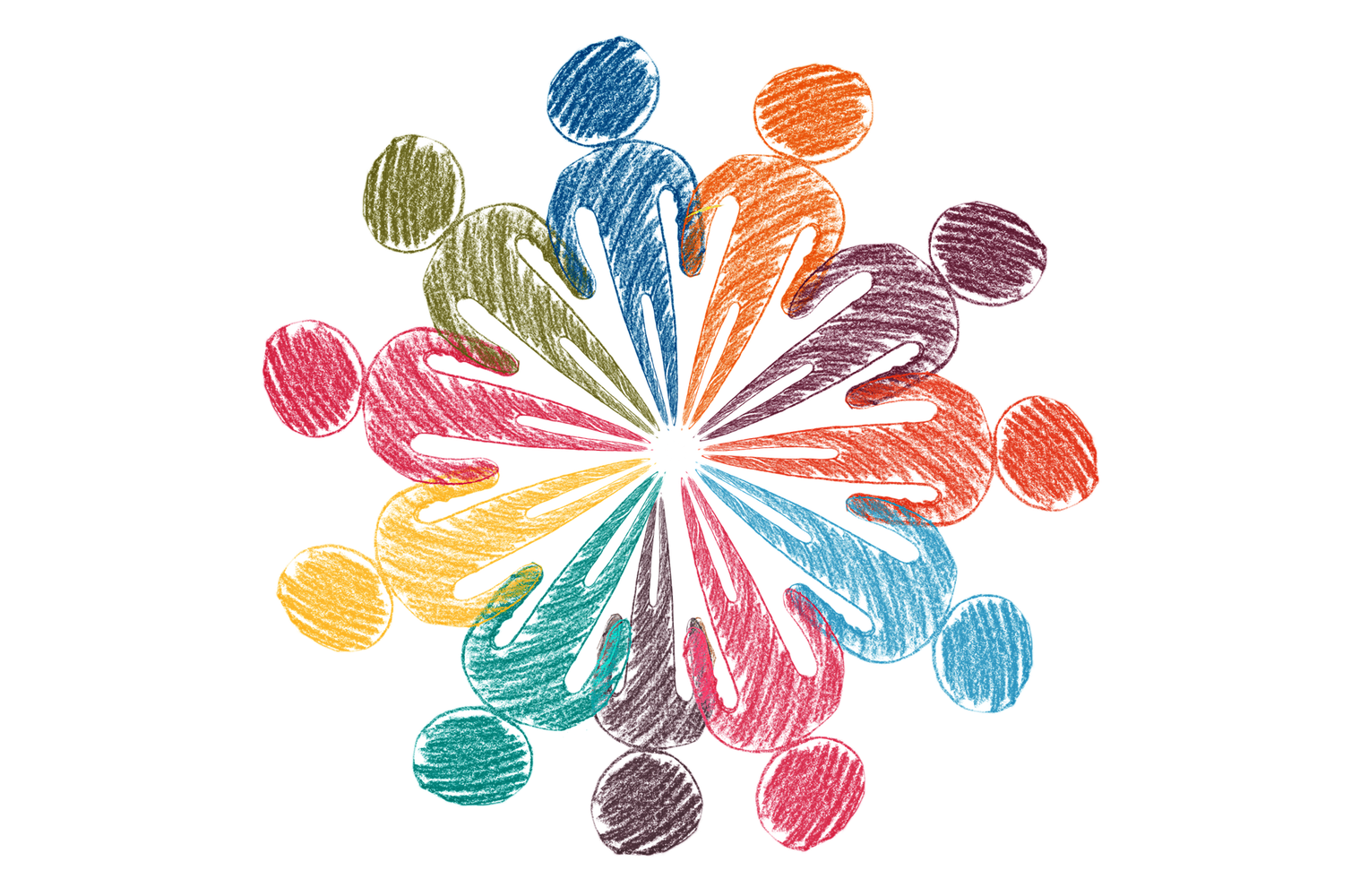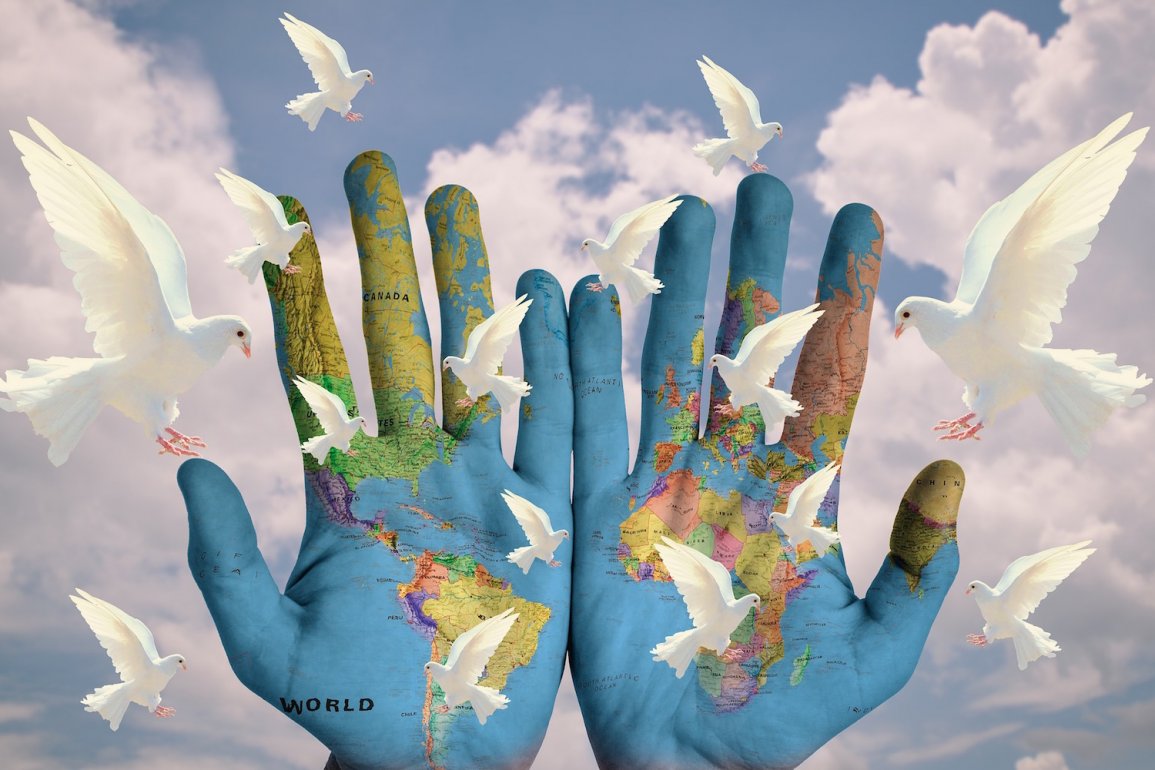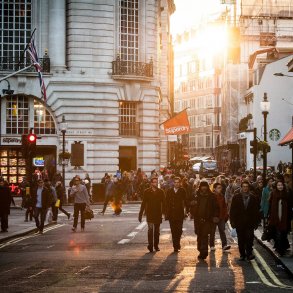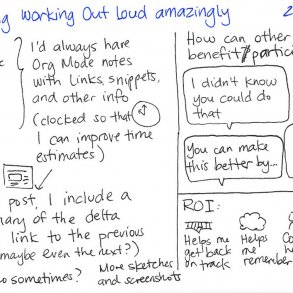8. How can we see this transition happening in (parts of) society?
Currently, a Second Tier society doesn’t exist yet. But in some countries like The Netherlands and especially in the world-wide networks of “Yellow people”, something new is emerging. In my international calls with Integral Coaches, MondoZen practitioners and other integral people,
immediately there is an intimacy, openness and understanding; we can easily listen to each other, ask powerful evocative questions, go deep and sometimes give wise advice without having met before.
More and more of these networks are emerging like Integral City, The Hague Center (9) and of course the IEC meetings! It is as if we are speaking a new international language that connects and feeds us. Maybe it is still a tender flower, but hopefully it is a strong one and a kind of weed multiplying quickly.
What might we see in these parts of society and the world?
Most societies are still functioning in the Traditional (Purple/Red/Blue) and Orange realms. The Netherlands is one of the Greener countries.
The Green perspective believes in boundless possibilities and self-development for everyone. It is focused on good and open communication, including people, caring for each other, investing in ‘underdogs’. It strives for harmony, happiness and a good life for everyone and doesn’t like conflicts and painful measures.
It cannot deal with (Red) aggression/action and dislikes (Blue) judgments, hierarchies and procedures.
Green looks for solutions that fit its vision and takes the time to find them. ‘Polderen’ (seeking a compromise (particularly within a political context) in order to come to an agreement) is a typical Dutch word. Equality is a very important value.
In section 3 we already saw that listening to all voices without discernment leads to stagnation in society.
In order to progress, Green has to take the lead. And taking the lead at this moment in history means taking unpopular measures like abolishing petrol cars; diminishing the number of personal and business flights; changing eating patterns (less meat); buying sustainably made clothes; fast transition to renewable energy sources; looking for mixed strategies to deal with migrants; building energy-neutral greenhouses; lowering the power consumption in industry; stopping with using gas from Groningen; making sharp choices in any domain. We are confronted with difficult dilemma’s like:
– expensive surgical operations for a few <-> healing many people with cheap medicines
– individual freedom of choice <-> banning petrol, meat or guns
– admitting more migrants <-> more costs and less public support
– better education <-> higher public costs.
 Of course this might arouse conflicts and disrupt harmony which Green doesn’t like. Another big obstacle is that implementing the Green agenda seems to become prohibitively expensive. So, Blue-Orange tends to take over again leading to more money-driven policies and more bureaucracy. (Wow!) How can this regression be transcended and how can we use the powerful Yellow tendencies in our society to progress to the Integral level and Second Tier?
Of course this might arouse conflicts and disrupt harmony which Green doesn’t like. Another big obstacle is that implementing the Green agenda seems to become prohibitively expensive. So, Blue-Orange tends to take over again leading to more money-driven policies and more bureaucracy. (Wow!) How can this regression be transcended and how can we use the powerful Yellow tendencies in our society to progress to the Integral level and Second Tier?
To support society to enter Second Tier much needed steps can be taken like sharing knowledge about the evolutionary view, deep inquiry and slowing down.
8.1 Step of sharing knowledge
The first step in the transition to Integral is to recognize the value of all previous perspectives as we need all value systems integrated in a healthy way to function at a higher level. It means that people need to know about the integral map and that what is happening in the world, can be explained better by using this map. We must learn to observe what is going on from an evolutionary perspective.
8.2 Step of inquiry
Then, just like individuals need to get to know themselves in all their (developmental) layers, to discover what colours their shadows have, to deal with their oppressed and underdeveloped parts, to do their personal work with an open heart and develop their spiritual line in order to learn to live honestly and in peace with themselves and their fellow humans; similarly, organisations and societies have to take on the responsibility to do this deep work.
We have to formulate inspiring purposes for policies and activities in all realms of society, including all citizens (this is one of the principles). For example, the realisation of more sustainable energy systems is not only interesting for implementing a Green agenda, but can be very profitable for (new) enterprises and will provide new employment opportunities. We have to find out where new ideas and possibilities get stuck and how to get the stream flowing again.
This can be compared it with getting the water under control: building dikes and bridges, making more space for abundant water, digging new canals, thinking about new flood defence strategies.
We have to discover what views and actions are hindering the evolutionary progress of society and find out in which ways we can start rowing in the same direction. Often we have to learn to become humble and to wait for the moment that new openings become visible.
8.3 Step of slowing down
An important condition for inquiry and change is to slow down like is being done in the application of the U-process. CHE-NL is developing a new tool for meetings called the Development Forum in which we try to find answers to a specific question/issue starting with slowing down and speaking from our inner wisdom. We call it the Art of Second Tier Communication.
Practicing slowing down and speaking from the heart is an excellent way of introducing the Integral perspective and can be done in many different situations. Slowing down opens the access to connection with all people, all beings, all things, the whole cosmos. The connection is always there but most of the time we forget it and tend to act from separateness.
Slowing down facilitates deep listening to inner wisdom, surrender to what emerges, and organising in a natural way. Solutions then arise from the morphological field of endless possibilities.
9 Finally
Looking from the Integral Second Tier perspective creates more connectivity between people, more clarity about the next steps needed to solve our problems, more energy and action leading to concrete results based on dialogue with all parties involved.
The Center for Human Emergence in the Netherlands (CHE-NL) wants to contribute to this transition from First to Second Tier together with all organizations and individuals who see the benefit of it.
We already see in various places how this perspective works to transform organizations into places of purpose. Everybody’s personal development as an integral leader is important and needed to meet the current challenges. As SDi-scientist Dr. Don Beck says: “No more prizes for predicting rain, only prizes for building arks”.
—————————————————
9 The Hague Center for Global Governance, Innovation & Emergence exists to help align necessary resources for the current human and planetary transition. This transition is, in its essence, about moving from separation and polarisation, towards coherence and complementarity. This same transition is playing itself out across all sectors — ecology, economy, and governance, to name a few key ones.
Republished with permission of the author.
Featured Image/graphic link, bolding, in-text image, some hyperlinks, and pullout quotes added by Enlivening Edge Magazine.





Thank you so much for your clearly written article. Until now I have struggled to fully understand Integral and the evolutionary process. Your article has not only given me a better understanding. It has also given me a much greater appreciation of its importance and the need to move forward with it, including the critical need to find more Integral leaders.
The example you describe of the Dutch government’s recent cutting of health care costs without considering consequential costs seems typical of conservative (right wing) parties who feel they have been elected to better manage government affairs. Yet typically, their cost cutting actions only defer costs in other areas.
In this Dutch example it seems that many of the long-term care facilities, i.e. residential care, that have been closed were serving elders with lower level care needs (levels 1 to 3) that can be better served with home care and that can be converted to other uses. And those facilities that serve elders with heavier care needs (to level 7) are mostly vestiges of the medical/institutional/hierarchal model (Orange), with a few exceptions such as De Hogeweyk in Weesp (Green).
With organizations such as Buurtzorg providing excellent home care, is there an opportunity at this time for long-term care/residential care to transition into Teal by having these organizations efficiently combine home care and long-term care services? And if so, what would it take?
A switch to teal or even yellow for that matter would require fundamental knowledge of economics, which is a very important element of human society because it is the bases for all of our exchanges. We humans can not do everything for ourselves and thus we must exchange with others. Without learning about economics or addressing monopolies you are sure to cause regression (you can not leave out such an important element). Welfare capitalism is not sustainable because true cost is not factored in. Distorted cost and costs that are not internalized leads to many problems such as exploitation of people,animals, and earth. To top it off so long as Governments are allowed to have a monopoly on force you will not be able to deal with any of the other monoplies. Visit Ambiarchy.com if you are interested in learning more.